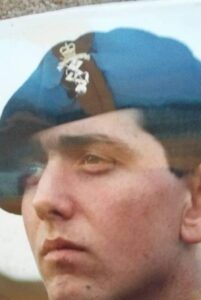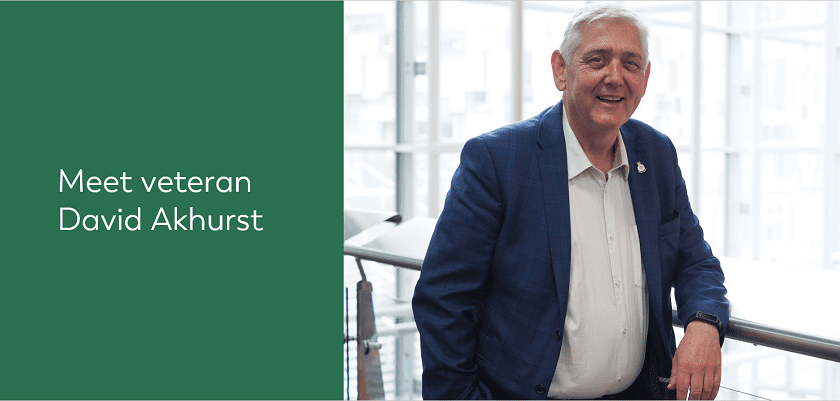Amulet’s Regional Director, David Akhurst was a lance corporal in the Royal Electrical and Mechanical Engineers. He served in the British Army for eight years before becoming a casualty of the post cold war UK military reduction programme.
With transition to a civilian life forced upon him, David had to quickly adjust to his new circumstances. Though a trained and time-served mechanic, it turned out that the UK motor industry wasn’t as welcoming as the facilities management industry turned out to be.
Said David; “It’s funny that my trade in the army wasn’t as appreciated outside the military as much as some of the skills and experiences I gained in basic training.

“I left the army with some deeply engrained traits, things that as a soldier are drilled into you from the get-go, such as always being smartly presented, never being late, and having a work ethic that is second to none. In the civilian world I found that I just worked harder than my colleagues around me, and that was recognised and appreciated by my new employers.”
“In the workplace back then, people were a little nervous about employing ex-soldiers, there weren’t so many forces friendly employers, or the organisations that exist now like JobOppo providing transition support.
“Transition for me was not easy, it didn’t help that I was a little bitter that I had to leave – I had signed up for 22 years. But resilience and problem solving in the face of challenge are qualities of most in the military. The reality is that resilience and personal discipline, combined with the man management skills that officers gain, are really useful in the civilian workplace.
“My advice to those leaving the armed forces these days is to take advantage of the transition support that is available while you are still enlisted. Look for forces friendly employers, like the Churchill Group; organisations like JobOppo and the Defence Association’s Employer Recognition Scheme can point you in the right direction. Forces friendly employers appreciate the qualities you bring to their businesses, and they have structures in place, like mentoring programmes, to help you successfully integrate.
“And finally, ‘back yourself’, you can be every bit as successful in the workplace as in the armed forces – I am proof of that, and if I can succeed, so can you.
“The facilities management industry, and the outsourced security sector, which is part of it, are spaces where your military experiences will be valued whether they are operational, administrative, engineering or communications focused. If you want to manage projects, manage people, or even work outside, there is scope for you.”
If you enjoyed this post, maybe you’d like to meet some more of our veterans:



